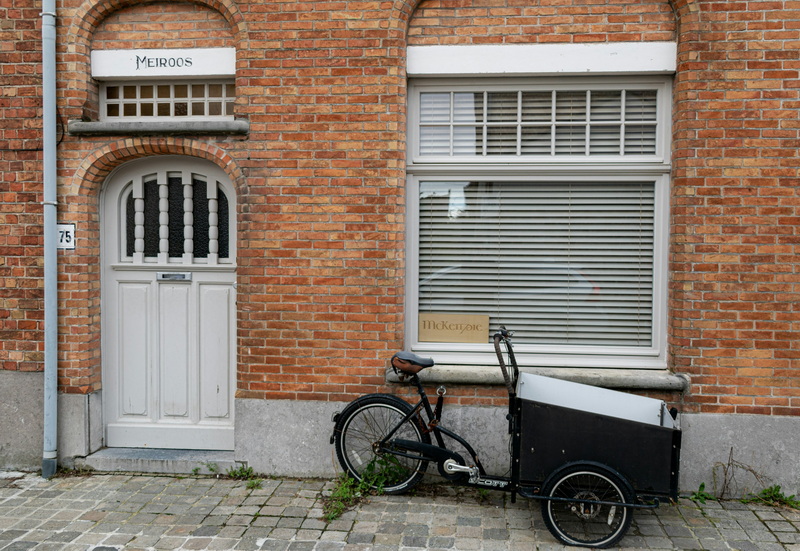English 




Views: 222 Author: Astin Publish Time: 2025-05-08 Origin: Site



Content Menu
● Regular Cleaning of Aluminum Doors
>> How to Clean Aluminum Doors
● Inspecting and Maintaining Weatherstripping and Seals
>> Importance of Weatherstripping
● Maintaining the Door's Finish
>> Periodic Polishing and Protection
>> Avoiding Damage During Home Work
● Preventing Corrosion and Damage
● Additional Tips for Longevity
● Enhancing Security Features of Exterior Aluminum Doors
>> Installing Advanced Locking Systems
● Addressing Common Issues with Aluminum Doors
>> Fixing Door Alignment Problems
>> Summer Care
● Environmental Considerations
>> Impact of Coastal Environments
● Professional Maintenance and Repairs
>> When to Call a Professional
>> Routine Professional Inspections
● Eco-Friendly Maintenance Practices
>> Using Environmentally Safe Cleaners
● FAQ
>> 1. How often should I clean my exterior aluminum door?
>> 2. What type of lubricant should I use on door hinges and locks?
>> 3. Can I use harsh chemicals to clean aluminum doors?
>> 4. How do I maintain the weatherstripping on my aluminum door?
>> 5. What should I do if my aluminum door has scratches?
Exterior aluminum doors are prized for their durability, sleek appearance, and resistance to corrosion. However, to keep them looking great and functioning smoothly over time, regular maintenance is essential. This comprehensive guide covers all the key maintenance tips for exterior aluminum doors, including cleaning, lubricating, inspecting, protecting, and enhancing their security features.

Dirt, dust, pollutants, and environmental residues accumulate on exterior aluminum doors, dulling their finish and potentially causing damage over time. Regular cleaning preserves the door's appearance and extends its lifespan.
- Use a soft cloth or sponge with warm water mixed with a mild detergent (such as dish soap) to gently wipe down the door surface.
- Avoid abrasive cleaners, steel wool, or harsh chemicals like acetone, ammonia, or vinegar, which can scratch or damage the finish.
- For stubborn stains, use a soft-bristle brush or non-abrasive sponge to gently scrub without harming the surface.
- Rinse thoroughly with clean water to remove any soap residue.
- Dry the door with a soft microfiber cloth or allow it to air dry in the shade to prevent water spots and oxidation.
- Clean your aluminum door at least every 3-4 months.
- In coastal, urban, or industrial environments where dirt and salt buildup is heavier, monthly cleaning is recommended.
- Lubricate hinges, locks, and other moving parts every six months to prevent stiffness and squeaking.
- Use a silicone-based lubricant as it does not attract dust and grime like oil-based products.
- Apply a small amount of lubricant to each moving part and operate the door several times to distribute evenly.
- Wipe off any excess lubricant to avoid dirt buildup.
- Inspect screws, bolts, and other hardware regularly for looseness.
- Tighten any loose components to maintain door alignment and security.
Weatherstripping ensures your door is energy-efficient by sealing gaps that could let in drafts, moisture, and insects.
- Check weatherstripping every six months for cracks, brittleness, or damage.
- Replace worn or missing weatherstripping promptly to maintain insulation and prevent leaks.
- Clean the surface thoroughly before installing new weatherstripping to ensure a tight seal.

- Minor scratches can be repaired using touch-up paint that matches the door's finish.
- Allow paint to dry completely and avoid touching the area until fully cured.
- Polish aluminum doors 2-4 times per year depending on environmental exposure.
- Use specialized aluminum polish or wax to protect the finish from dirt, moisture, and oxidation.
- Avoid cleaning or polishing in direct sunlight or high temperatures to prevent damage.
- Protect aluminum surfaces from cement, plaster, paint, or other construction materials during home renovations.
- Use protective tape on door edges and remove it immediately after work is completed.
- Clean glass panels with a glass cleaner or a mixture of water and white vinegar.
- Use a microfiber cloth and wipe in circular motions to avoid streaks.
- Inspect glass for cracks or condensation issues regularly and address any problems promptly.
- Rinse doors regularly to remove salt deposits, especially in coastal areas.
- Avoid allowing corrosive substances like concrete, solvents, or wet packing materials to remain on the door surface.
- Use tap water rinses from top to bottom before applying any cleaning agents.
- Avoid abrasive sponges or wire brushes that can scratch aluminum.
- Clean doors on mild, cloudy days or when shaded to prevent rapid drying and streaking.
- Vacuum debris from tracks and rails to ensure smooth operation.
- If oxidation appears, use a rust remover designed for aluminum, testing on a small area first.
To improve the security of your aluminum doors, consider upgrading to advanced locking mechanisms such as multi-point locks or smart locks. These systems provide enhanced protection against forced entry and can be integrated with home automation systems for remote monitoring.
Strengthening the door frame with metal reinforcements or security plates can prevent break-ins by making it harder to force the door open. Regularly inspect the frame for any signs of wear or damage and repair promptly.
Although aluminum is resistant to warping, extreme temperature changes or improper installation can cause slight warping. If you notice the door sticking or not closing properly, check for warping and consult a professional if necessary.
Misaligned doors can cause drafts and reduce energy efficiency. Adjust hinges or strike plates to realign the door. If the problem persists, professional adjustment may be required.
Before winter, ensure weatherstripping is intact and seals are tight to prevent cold drafts. Lubricate locks and hinges to avoid freezing and stiffness.
In hot weather, check for expansion issues and ensure that the door finish is protected from UV damage by applying protective wax or polish.
Salt and moisture in coastal areas can accelerate corrosion. Frequent rinsing and protective coatings are essential to combat these effects.
Pollutants in urban environments can dull finishes and cause buildup. More frequent cleaning and polishing help maintain appearance.
For complex issues like significant damage, warping, or hardware replacement, professional services ensure proper repair and longevity.
Scheduling annual inspections by a professional can catch potential problems early and maintain door performance.
Opt for biodegradable and non-toxic cleaning agents to reduce environmental impact.
Properly recycle old aluminum doors and dispose of maintenance materials responsibly to minimize waste.
Exterior aluminum doors combine strength, style, and durability, but they require consistent care to maintain their best condition. Regular cleaning with mild detergents, lubricating moving parts, inspecting and replacing weatherstripping, protecting the finish, and enhancing security features are all crucial steps to prolonging their life and preserving their appearance. Seasonal care and awareness of environmental impacts also play a significant role in maintenance. By following these comprehensive tips, you can enjoy the beauty, security, and functionality of your aluminum doors for many years to come.

It is recommended to clean your aluminum door every 3-4 months, and more frequently (monthly) if you live in coastal or urban areas with higher pollution or salt exposure.
Use a silicone-based lubricant for hinges and locks as it prevents dust accumulation and keeps moving parts operating smoothly.
No, harsh chemicals like acetone, ammonia, vinegar, or abrasive cleaners can damage the aluminum finish. Always use mild detergents and soft cloths.
Inspect weatherstripping every six months for wear or damage and replace it if necessary. Clean the surface before installing new strips to ensure a tight seal.
Minor scratches can be repaired with touch-up paint that matches your door's finish. For deeper damage, consult a professional for repair advice.
